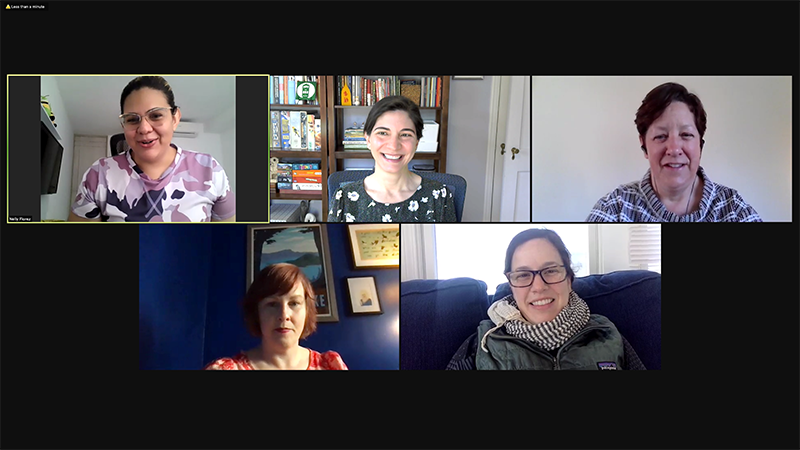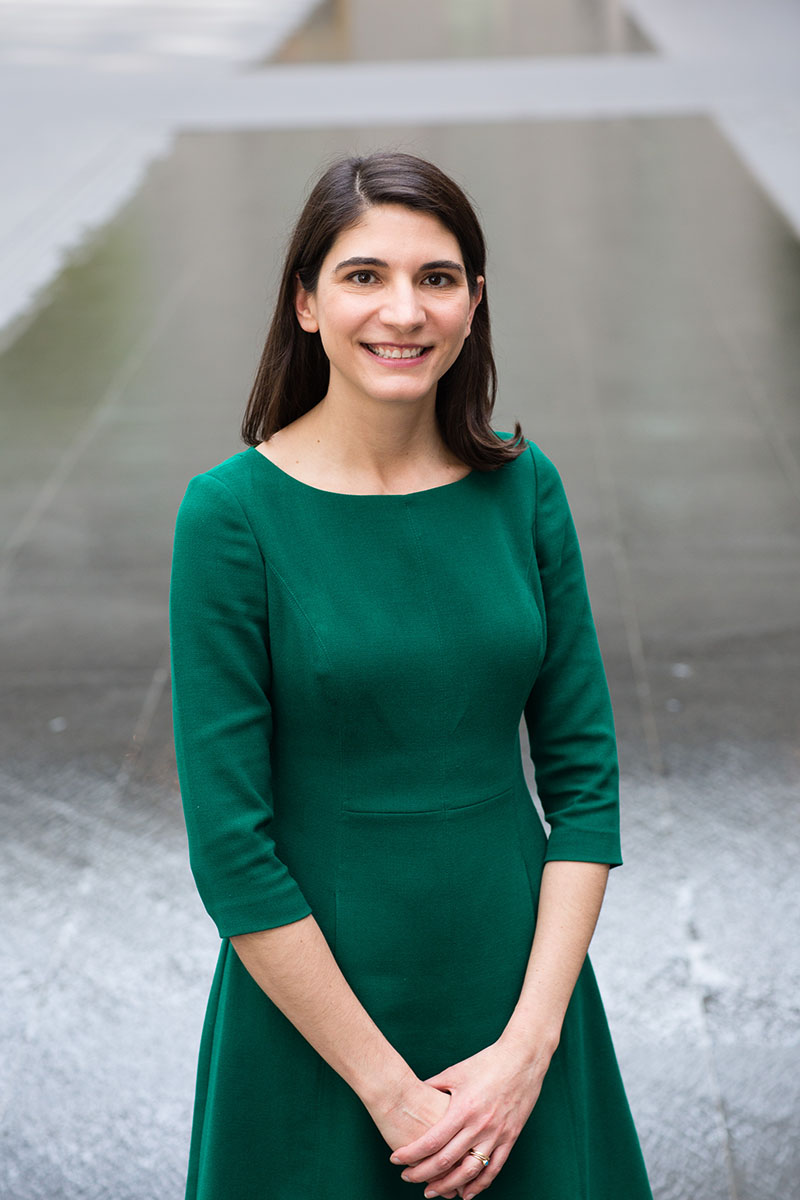Better Together

On March 17, 2020, I emailed a group of friends inviting them to join me for Think Tank Tuesdays and Thursdays (T4), a virtual fundraising coffee shop that I planned to host for 30 minutes twice a week for as long as we were in lockdown. A year in and 104 Zoom calls later, the Think Tank is still going strong.

Although my initial motivation for T4 was to stay connected to friends during the isolating early days of the pandemic, it has turned out to be so much more. Today, T4 has a core group of eight fundraising professionals from three different countries. We work in education, museums, scientific research organizations, international NGOs, public radio, and the performing arts. We are at different stages of our careers and working in organizations of different sizes.
Talking about our group one year in, the word we kept coming back to was “lifeline.” T4 has provided a reliable dose of (virtual) human contact, brought structure to our weeks, helped us navigate the challenges of our new normal, and helped lighten the emotional load of the last year. Pandemic aside, it also has supported several of us through job transitions, expanded our knowledge of different fundraising sectors, and served as a trusted sounding board for fundraising dilemmas large and small.
The magic of T4 is not unique to us but is something you can create with a Think Tank of your own. Here are our top tips:
Strive for diversity. The diversity of our group is its biggest strength. It pops us out of our bubbles and helps us see our professional (and personal) challenges from multiple, different perspectives. It sparks creativity by introducing us to ideas from other nonprofit sectors and prompting us to think about how they could be applied in our own. It helps us see our unique individual problems in a larger sector-wide and even international perspective.
Don’t set an agenda. There are already too many meetings in our lives for which agendas need to be prepared and adhered to. T4 is not one of them. We let our conversations roam to whatever someone has on their mind or needs help with that day. What do you think of this new email strategy I’m working on? What services do you use to vet board prospects? How should I respond to this snarky email from my coworker? How do I broach the subject of a title change with my boss? When is the right time to retire? Is it worthwhile to get a CFRE? Which of these shirts should I wear for my upcoming Zoom job interview? Nothing is off limits, and the person with the most pressing question gets the floor.
Set a time and stick to it. Schedules change and conflicts arise, but consistency is key to getting people to show up time and again. By establishing a fixed day and time early on, those who were invested in the group could build their schedules around it. Meeting twice a week makes it more possible for everyone to attend at least once a week. More frequent meetings also help build rapport, deepen friendships, and increase the mutual trust that contributes to more open and frank conversations. We also rotate hosts monthly, which distributes the work and helps build group buy-in.
Come as you are. These are not donor meetings. We don’t expect anyone to show up in their fancy clothes with the perfect backdrop and a ring light providing perfect the lighting. No. We make breakfast during our calls, have the kids sit on our laps, play with the dog, or join from the car or while out on a walk. Time is precious, and if you let people multitask and work the call into their schedule in whatever way they call, you will see better participation.
Bring your whole self. While T4’s purpose is focused on professional support and development, we recognize that our personal lives are inextricable from our professional ones and bring those to the table as well. At a traditional networking event, you might talk about the strategy of how and when to approach your boss for a promotion, but you are less likely to talk about how you feel about that process. At T4, we bring the whole package.
Keep it virtual. I know that many people are getting tired of virtual meetings, so this might be unpopular advice, but I urge you to set up your Think Tank as a virtual event. Joining an online meeting for 30 minutes once or twice a week is so much easier to do than showing up in person. It allows you to bring together peers who live in different cities, even different countries. It allows participants to join for just 10 minutes if that’s all they have.
I have been a career-long member of AFP and am deeply invested in sustaining my professional relationships. If you are reading this article, I bet that you do too. While formal networking events and professional development programs have great value, nothing else I’ve ever done has come close to matching the amount of learning and growth I’ve experienced from these ongoing conversations with a small, dedicated group of diverse peers.
The pandemic has done so much damage throughout the world, but it also has highlighted what is most important in life: health, security, and personal connections, even if those have to be socially distanced. I always knew that I liked having a community of support, but I truly never realized how vital it was to my health and happiness or how much it could contribute to my personal growth. In T4, we have learned that we are better together. I hope you find the same with your own Think Tank.
 Amy Parker, CFRE, is passionate about the power of knowledge to transform lives and change our world for the better. She is currently director of endowment for the Wikimedia Foundation, the nonprofit organization that operates Wikipedia, one of the most popular websites in the world. Previously, she worked as an international fundraising consultant, providing strategic counsel for clients ranging from the American Association for the Advancement of Science and UArctic to the University of Melbourne and Hong Kong University of Science and Technology. She also held fundraising leadership roles at the Smithsonian Institution during its historic $1.5 billion campaign; the New York Public Library; and the University of North Carolina at Chapel Hill.
Amy Parker, CFRE, is passionate about the power of knowledge to transform lives and change our world for the better. She is currently director of endowment for the Wikimedia Foundation, the nonprofit organization that operates Wikipedia, one of the most popular websites in the world. Previously, she worked as an international fundraising consultant, providing strategic counsel for clients ranging from the American Association for the Advancement of Science and UArctic to the University of Melbourne and Hong Kong University of Science and Technology. She also held fundraising leadership roles at the Smithsonian Institution during its historic $1.5 billion campaign; the New York Public Library; and the University of North Carolina at Chapel Hill.